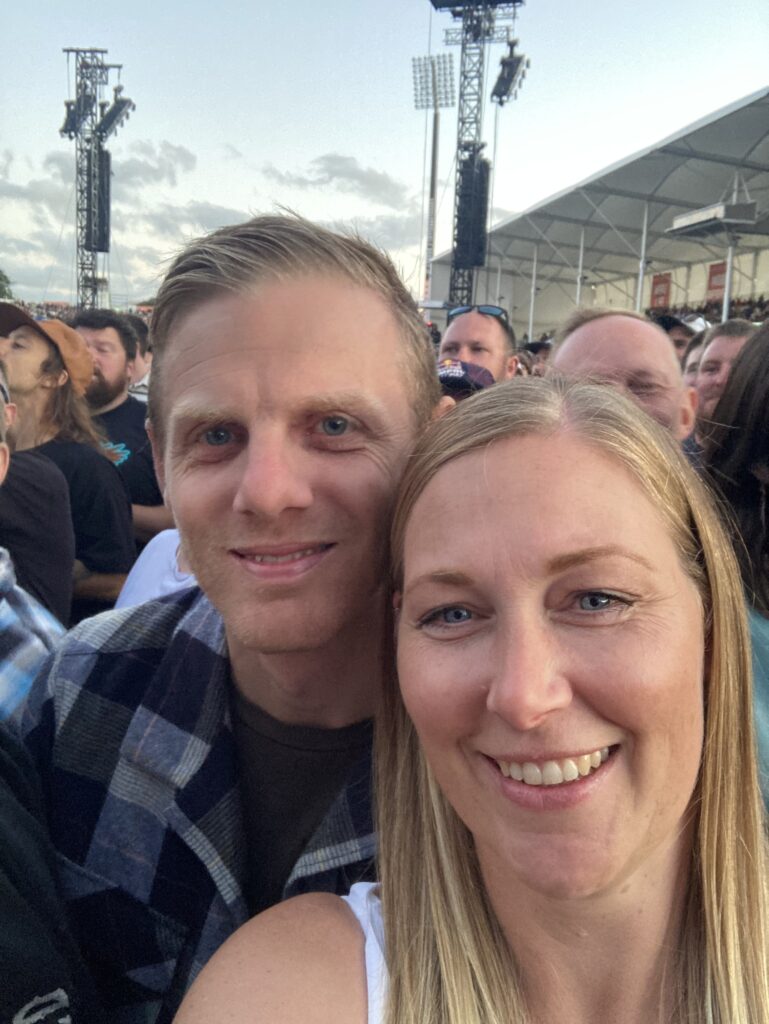If you’re a school leader, have you ever thought about the importance of the interviewing process in your disciplinary investigations? In this article we’ll explore why it’s important and give you five tips to improve your practice in this area.
An allegation
Imagine this scenario. You’re approached by one of your teachers. The teacher advises you that he has just been speaking with two female students. They have advised him that they have been the victims of verbal racial abuse by another male teacher that day. They allege that the male teacher – let’s call him, “Mr A” (I apologise to anyone out there called “Mr A”) – swore at them and made derogatory remarks about their skin colour. This is alleged to have taken place in the classroom in front of a number of other students. What do you do?
Your first task is to obtain an accurate account from everyone involved. This includes the two complainants. You need to conduct investigative interviews. Chances are you’re not going to have CCTV or a recording device in your classroom. Interviewing everyone involved is the only way to get to the truth.
These interviews are going to inform the decision your school ultimately makes about how to deal with the two students and Mr A. This process is important! Get these initial interviews right and you’ve gone a long way toward making this process as fair as possible. Get it wrong and you could jeopardise the entire investigation process. So, here are five free tips to help you navigate this tricky situation.
1. Reduce exposure to post-event information
As I’ve written previously, memory occurs in three stages: encoding, storage and retrieval. At any time during these phases, it’s easy for memory to be contaminated. One of the ways in which it can be tainted is through the process of socialisation.
Think about what happens when a group of people all experience the same event. Not everyone remembers the event in exactly the same way. I recently attended a Foo Fighters concert with my wife and some friends. In some ways our memories of the concert will be similar. Some details will be recalled in the same way by everyone. In other aspects they will be very different. I will “remember” some details vividly that others won’t “remember” at all. This happens all the time. I’m sure you’ve experienced it.
Post-event information and memory
What happens when everyone in the group starts reflecting on the event together? As we listen to the accounts of others, we are exposed to post-event information. Essentially our memories are tainted by the memories of others. Eventually there will be aspects of the Foo Fighters concert that I think I’m “remembering”, when I’m actually just regurgitating what someone else has retrieved from their memory. When it comes to retrieving memories of the concert from my brain’s storage facilities, my memories will be adjusted. New memories will be constructed based on the post-event information to which I’ve been exposed during the socialisation process.

Now imagine what happens if you have a group of students who have all experienced the event described in our scenario above. You put them in a room together. What do you think is going to happen? They’re going to talk to each other about what happened. Their memories will be contaminated as they hear different versions of the same event.
By the time you speak to them to obtain their version of events, their memories are less accurate. They are consequently less reliable.
Consider how you can minimise this risk. Is there some way you can separate the students before speaking to them? If there is going to be a time delay before the interviews, could you at least instruct the students to avoid discussing the incident with each other?
2. Take time to plan
For young people, the amount of detail they can successfully retrieve from memory reduces over time. An interview should therefore be conducted promptly. But this isn’t an excuse to go rushing in without making a plan. Even a few minutes of planning can make a huge difference.
A plan requires you to answer some key questions. Here are just a few.
-
- How will the interview be recorded?
-
- What’s the objective of your interview?
-
- What topics need to be covered?
-
- How will your questions be worded?
-
- Where will you conduct the interview?
When you’re managing a crisis like this, it’s easy to be driven by emotion. Emotion can be the enemy of good decision-making. It can cause you to move quickly without careful consideration. Slow down. Take some deep breaths. Create an interview plan.
3. Prioritise open questions
Open questions
The questions you ask essentially guide the interviewee’s brain as it retrieves the information from storage. An open question is one that encourages a detailed response without giving any hints as to what details are required. This reduces the risk of memory contamination. Here are some examples of open questions:
-
- “Tell me everything that happened.”
-
- “Show me what happened.”
-
- “Explain to me what happened next.”
You’ve probably noticed that these “questions” don’t actually end with a question mark. They’re actually more like “prompts” than “questions”. This can be a helpful way to frame it. Rather than “questioning” the witness, you’re simply “prompting” their brain.
Using open-ended questions or prompts encourages the interviewee to “dig deep” during the retrieval process. More detail is elicited. Most witnesses will retrieve the details in which they’re most confident which results in a more accurate account.
Closed questions
Conversely, asking specific closed questions early in the process can be dangerous. A closed question is one that demands a particular detail. Here are some examples:
-
- “When he said those words to you, was he standing at the front of the room or right next to you?”
-
- “Did that make you feel angry or sad?”
-
- “Did you go straight to the office after this happened?”
These sorts of questions only require the witness to retrieve a small detail from their memory, resulting in a far less detailed account. You end up in a back-and-forth conversation like a game of tennis. You ask a huge number of questions and ultimately end up with a less detailed account. It’s an inefficient way of obtaining information. It’s also dangerous.

Danger
There’s plenty of research demonstrating the dangers of poor questioning. It’s dangerous because if the specific information you’ve requested is not in the witness’ memory, the witness may guess the answer. Put yourself in the shoes of the interviewee. You know that something serious has happened. You know that you’re supposed to be helping the person investigating the incident. You want to help. So when you’re asked a question, you don’t want to disappoint by saying that you don’t know the answer. Instead, you make up the details. This is not necessarily deliberate. It’s not a lie. It’s just that your brain will create a memory in order to please the person asking the questions. It’s a natural human response.
Please don’t think that you can never ask a closed question. You can. Closed questions are often necessary to clarify information that has been given in answer to an open question. But you should always prioritise open questions.
4. Avoid leading questions
Even more dangerous than the closed question, is the leading question. Where a closed question seeks a specific detail, a leading question goes a step further and suggests a specific detail.
Let’s return to our scenario.
Imagine that one witness has reported that Mr A “shook his fist” while yelling at the students.
You interview the second witness. You ask a great open question which results in a five-minute uninterrupted recall from the student. During this recall the student does not report any fist-shaking. But because the fist-shaking is in your head, you ask a leading question: “Tell me about Mr A shaking his fist at your friends.” Easy to do, right?
You have now implanted a memory. There’s a risk that your witness is going to construct a memory of Mr A shaking his fist. The accurate account you had up until this point has now become contaminated and unreliable.

5. Avoid system-switching
The long-term memory includes separate systems. The system most relevant to the craft of investigative interviewing, is the “declarative system”. This system is divided into two sub-systems: “semantic memory” and “episodic memory”.
Semantic memory
Semantic memory is the general knowledge section. It includes our understanding of words and their meanings, facts, concepts and ideas. If I ask you to tell me about the role of a king, you will go to your semantic memory. You will provide me with general information about the tasks generally performed by a monarch. If I ask you for the name of the current King of the United Kingdom and the Commonwealth, you will go to your semantic memory to retrieve the answer: Charles.
Episodic memory
Episodic memory refers to our knowledge of specific incidents or events. Episodes, if you like. If I ask you to tell me about the time you met King Charles in person, you will go to your episodic memory to retrieve these details. Of course, within this story there will also be details retrieved from your semantic memory. You will use words to describe the event. The meanings of those words are stored in your semantic memory. You might include some general information about the United Kingdom to enhance your story – you’re back into your semantic memory.
When you interview a witness about a particular event, you’re asking them to retrieve details from their episodic memory primarily: “Tell me everything that happened in as much detail as possible.”
But you’ll also ask the witness to use their semantic memory: “Give me the names of everyone else who was in the room.” These are often details that we need to get an accurate picture of what happened.
The problem here is that our brains find it difficult to switch back and forth between episodic and semantic memories. As we get tired, errors can occur.
You can minimise this risk this by focussing on episodic memory first, before going back and clarifying details. This is difficult. We naturally want to get as much detail as possible about each episode before moving on. While detail is important, asking for detail too early on can be counter-productive.
The importance of investigative interviewing
The interviewing process is important. In the absence of any other evidence, interviewing is the only way to get to the truth.
The stakes are high. If the complainants are telling the truth, you have a staff member in a position of power and authority racially abusing students. Something will need to be done. And fast. The psychological safety of your students is paramount. The reputation of your school is on the line.
On the other hand, what if things aren’t quite as they seem? The complainants could have misheard Mr A. They could even be making up the allegations out of spite. If you take action based on false information, the consequences could be dire. Mr A’s reputation will be in tatters. Staff morale will take a massive hit. Student learning will be disrupted. Dismiss Mr A unfairly and you could face serious penalties.
To get it right:
-
- Reduce exposure to post-event information
-
- Take time to plan
-
- Prioritise open questions
-
- Avoid leading questions
-
- Avoid system-switching
If all this sounds challenging, that’s because it is. The human brain is incredible but also complex. It’s not easy to obtain a detailed, accurate, reliable account. But it is possible. You can transform your capabilities in this area. You need a method. You need regular practice in a training environment. And you need to receive formative feedback on your interviews. We can help you with all of this if you’re interested.
It’s worthwhile investing in your interviewing capabilities. Effective interviews get to the facts. Facts inform sound decision-making. And sound decision-making results in fair outcomes for everyone involved.
